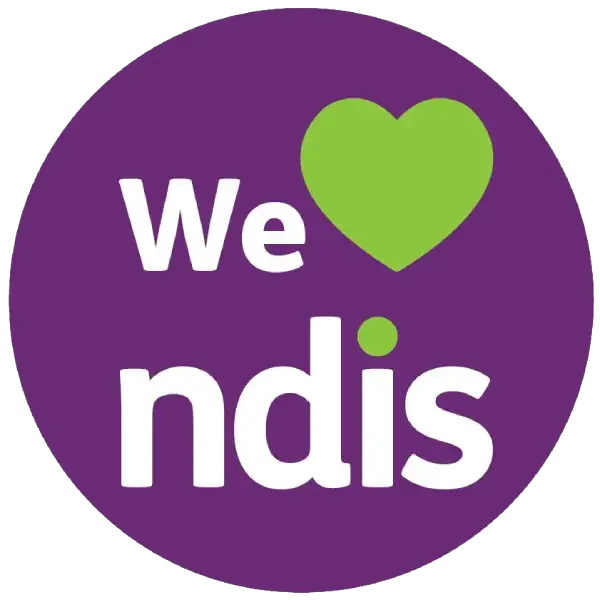Enquire about our SIL vacancies
In this blog, we’ll break down the roles of NDIS Plan Managers and Support Coordinators, highlight their unique responsibilities, and explain how they can complement each other to help you achieve your goals under the NDIS framework.
What is an NDIS Plan Manager?
An NDIS Plan Manager is a financial expert who helps you manage the funding allocated in your NDIS plan. Think of them as your personal accountant for NDIS-related expenses. Their primary role is to handle the financial administration of your plan, ensuring that funds are spent correctly and efficiently. Discover the benefits of NDIS core supports.
Key Responsibilities of a Plan Manager:
-
Financial Management: A Plan Manager helps you track your spending, ensuring that funds are being used efficiently. They handle invoices, payments, and claims, so you don’t have to worry about managing receipts and ensuring everything aligns with your NDIS budget.
-
Budgets and Reporting: They provide regular updates on how your funds are being spent and whether you are on track to stay within your allocated budget. This allows you to make informed decisions about your services and supports.
-
Choice and Control: With a Plan Manager, you have the flexibility to choose from a wide range of providers, including those that are non-registered, without worrying about managing payments or complex financial tasks.
-
Financial Expertise: A Plan Manager is experienced in understanding the NDIS pricing arrangements, which can sometimes be confusing for participants. They ensure that all claims are processed according to the correct rates and guidelines.
In short, Plan Managers allow you to focus on what matters most—your health and wellbeing—by removing the burden of financial management from your plate.
What is a Support Coordinator?
A Support Coordinator, on the other hand, focuses on helping you implement and maximize the use of your NDIS plan. They act as your guide, advocate, and problem-solver throughout your NDIS journey. Their role is more hands-on, involving building connections with service providers and supporting you in achieving your goals.
Key Responsibilities of a Support Coordinator:
-
Connecting with Service Providers: Support Coordinators help you find and connect with service providers that can deliver the supports you need. This includes finding providers for services such as therapy, personal care, transport, and other daily assistance.
-
Goal Setting and Support: They work with you to develop a clear plan to achieve your personal goals, offering guidance and support along the way. They may suggest strategies or programs to enhance your quality of life.
-
Problem Solving: If any issues arise during the course of your NDIS journey, such as difficulties with providers or accessing the right services, a Support Coordinator is there to help solve these problems.
-
Assisting with Complex Cases: If you have complex needs or require more intensive support, a Support Coordinator can help ensure that all your services are integrated and working cohesively.
-
Navigating the NDIS System: With the intricacies of the NDIS system, a Support Coordinator provides a vital understanding of how to access services, manage funding, and ensure everything is utilised in the most effective way to meet your needs.
Support Coordinators are like navigators—guiding you through the maze of the NDIS, helping you make informed decisions, and ensuring that you get the most out of your supports.
Key Differences Between Plan Managers and Support Coordinators
While both roles are crucial in ensuring that NDIS participants receive the services they need, the key difference lies in their areas of focus:
-
Plan Managers are primarily concerned with the financial and administrative side of your NDIS plan, helping you manage your funding, pay for services, and stay within budget.
-
Support Coordinators focus on helping you access and coordinate your support services, ensuring that the services you receive align with your goals and needs.
In simple terms, a Plan Manager helps you with the “money side” of the NDIS, while a Support Coordinator helps you with the “service and support side.”
Key Differences Between Plan Managers and Support Coordinators
While both roles aim to improve your experience with the NDIS, there are clear distinctions in their focus areas and responsibilities:|
Aspect |
NDIS Plan Manager |
Support Coordinator |
|---|---|---|
|
Primary Focus |
Financial management of your NDIS plan |
Implementation and optimization of your NDIS plan |
|
Main Tasks |
Processing invoices, tracking budgets, and paying providers |
Connecting with providers, goal setting, and advocacy |
|
Administrative vs. Practical Support |
Primarily administrative |
Primarily practical and relational |
|
Who Benefits Most? |
Participants seeking financial ease without self-management |
Participants needing help navigating the system |
|
Flexibility |
Allows choice of both registered and unregistered providers |
Helps find the best-fit providers for your needs |
Can You Have Both a Plan Manager and a Support Coordinator?
Absolutely! In fact, many participants benefit from having both a Plan Manager and a Support Coordinator working together. Here’s how they complement one another:- The Plan Manager ensures your finances are in order, allowing you to focus on utilizing your funds effectively.
- The Support Coordinator helps you identify and connect with quality service providers, ensuring your plan aligns with your goals.
Which One Do You Need?
Deciding whether you need a Plan Manager, a Support Coordinator, or both depends on your individual circumstances and preferences. Ask yourself these questions:- Are you comfortable managing invoices and budgets yourself, or would you prefer professional assistance? (Consider a Plan Manager )
- Do you need help understanding the NDIS, finding suitable providers, or advocating for your rights? (Consider a Support Coordinator )
- Would having both roles provide the best balance of financial oversight and practical support?
Conclusion
The NDIS is designed to give participants greater choice and control over their lives, but navigating its intricacies can be overwhelming. That’s where professionals like Plan Managers and Support Coordinators come in. By understanding the difference between these two roles—and recognizing how they can work together—you can unlock the full potential of your NDIS plan. Whether you’re looking for financial peace of mind or practical guidance in achieving your goals, partnering with the right support team can make all the difference. At Ambition Health Group, we take the time to assess your needs, explore your options, and build a support network that empowers you to thrive.Recent Posts
Top Rated Services
Get A Quick Quote Now
Enquire about our SDA vacancies
Enquiry Now
Consult Our Care Experts
Grab Your Free Consultation Today!
Or give us a call to speak to someone now
1300 668 655









